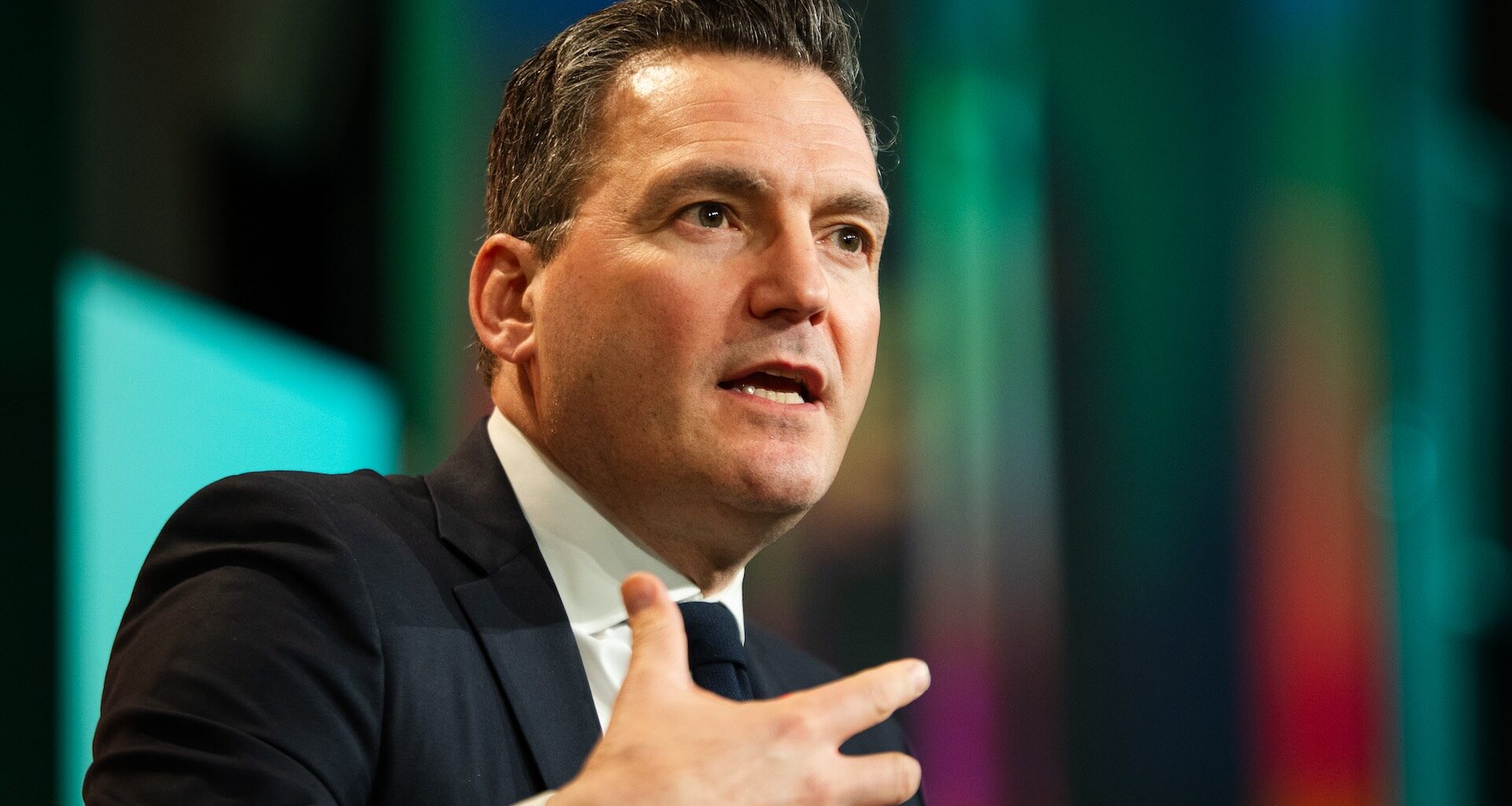The Liberal government plans to use its buying power to spur the development of data centres in Canada, but won’t yet commit significant sums to fund projects itself.
Tuesday’s federal budget gave AI Minister Evan Solomon the power to negotiate deals with firms building and financing digital infrastructure. It also expands the mandate of the $45-billion Canada Infrastructure Bank to allow it to back data-centre projects.
Talking Points
AI Minister Evan Solomon will strike deals to back data-centre projects, and the Canada Infrastructure Bank will now be able to invest in them, the Liberals’ federal budget announced
Ottawa plans to use its own demand for compute capacity to spur the buildout, but it’s not prepared to underwrite the whole sector, Solomon signalled at The Logic Summit
“We are seeing dozens and dozens of data-centre term sheets,” Solomon said at The Logic Summit in Toronto on Monday, adding that there are “lots of requests for the government to backstop.”
The generative AI boom has driven a surge of new data-centre projects around the world. The facilities can cost billions of dollars to build, factoring in construction, hardware and ongoing power needs. In Canada, established and new data-centre developers, power companies, institutional investors and telecom firms have all recently announced or are planning new AI compute facilities.
Related Articles
Ottawa’s digital infrastructure strategy will account for factors like the amount of energy and water compute facilities consume, how that power is generated, as well as the risk that the chips that fill them may need to be replaced periodically. In the U.S., data centres hooked to the grid drove up electricity rates, Solomon said. “We’re not here to download higher prices on consumers.”
Provinces will need to determine how much power to allocate to digital infrastructure projects, he said. Alberta is targeting $100 billion in data-centre investment over the next five years, but has proposed a levy on large new facilities that connect to the grid. Developers have also expressed concern about the provincial electricity regulator’s allocation process. Meanwhile, British Columbia and Quebec are rationing power to data centres.
Ottawa currently houses and processes its own data in both legacy data centres and with the cloud arms of tech giants like Google, Microsoft and Oracle. Those ties may be hard to break. As The Logic first reported, the innovation department estimated that switching its own compute usage away from Amazon Web Services would take up to three years, with other hyperscalers the only likely alternative.
Solomon said Monday the government needs to ensure the sensitive data it collects remains under Canadian law, and that a foreign power can’t coerce cloud providers to access it. Meeting its “stringent” sovereignty criteria “will require some data centres, and we will participate in that,” he said. “But we are not here to necessarily support a huge industry.”
Leading up to the budget, Canadian data-centre developers called on Ottawa to introduce measures to help them finance the buildout of sovereign AI capabilities. Governments should commit to buying compute capacity from Canadian-owned providers and offer tax incentives for companies to do the same, John Watson, group president for Bell Business Markets, said in a recent interview. In May, the telecom giant announced it planned to build six data centres in B.C., which it estimates will cost about $300 million over three years.
Pre-budget, Hypertec CEO Simon Ahdoot said the government should not directly fund new data centres, but could help lower the cost of financing them by underwriting borrowing by developers or customers. “There’s a lot of money out there to put into AI,” he said. The Montreal-based firm is planning a $250-million testbed for AI infrastructure, and its subsidiary 5C Group has announced data-centre projects worth billions of dollars.
The Liberal government under then-prime minister Justin Trudeau touted Canada as a prime destination to build data centres, citing the country’s cold climate, relatively clean energy grid, and AI research strength. The December 2024 fall economic statement committed $15 billion in debt and equity financing for data centres backed by Canadian pension funds, with the goal of generating $45 billion in projects.
That program never launched. Tuesday’s budget—the first under Prime Minister Mark Carney—did not revive the scheme, and does not include new capital Solomon can use in his dealmaking with data-centre developers.
Ottawa will work with project proponents to determine what kinds of incentives and financing each one needs to get off the ground, according to a senior government official. That could include a revenue guarantee or an offtake agreement to buy a certain amount of compute capacity for government use. The official requested anonymity because they were not authorized to publicly discuss budget details.
The federal government has already backed one new data-centre project indirectly. In December, it awarded $240 million in financing to Cohere to help the Toronto-based AI firm pay for compute at a new facility in Cambridge, Ont. New Jersey-based CoreWeave built that data centre, which will also be used by other Canadian AI companies.
Harvard University economist Jason Furman estimates that investments in equipment and software for such facilities drove 92 per cent of U.S. economic growth in the first half of 2025. The high level of spending has stoked fears of an AI bubble.
Solomon on Monday acknowledged those concerns. While demand for AI compute is likely to continue increasing, it may not be a smooth rise, he said. “If the music stops for a while, we’ve got to be as careful as every other investor.”
Subscribers can join The Logic’s newsroom for an exclusive event unpacking the 2025 federal budget on Thursday, Nov. 6, at 12 p.m. ET/9 a.m. PT. Keep an eye on your inbox for the registration link. And you can read more of our 2025 federal budget coverage here.



